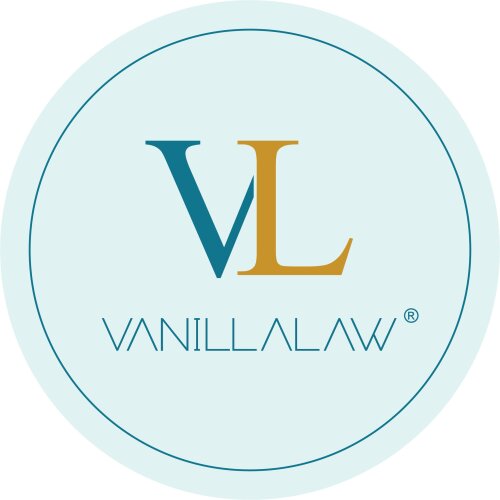Best Private Equity Lawyers in Singapore
Share your needs with us, get contacted by law firms.
Free. Takes 2 min.
Or refine your search by selecting a city:
List of the best lawyers in Singapore
About Private Equity Law in Singapore
Private equity refers to investments made directly into private companies, or sometimes the buyout of public companies resulting in their delisting from stock exchanges. In Singapore, private equity is a significant and growing sector, supported by a stable legal environment, a pro-business government, and the nation's status as a global financial hub. Private equity transactions in Singapore often involve complex cross-border deals, fundraising, mergers and acquisitions, and joint ventures. These activities are governed by a mix of statutory regulations and common law principles, making legal advice indispensable for parties engaging in this space.
Why You May Need a Lawyer
Engaging in private equity transactions typically involves high value and high risk. A lawyer specialising in private equity can help you navigate complex legal and commercial issues, such as:
- Structuring investment funds and advisory vehicles
- Drafting and negotiating investment or acquisition agreements
- Conducting comprehensive due diligence on target companies
- Ensuring regulatory compliance with local and international requirements
- Managing disputes, exit strategies, and unwinding investments
- Advising on taxation and employment issues connected with private equity deals
Whether you are an investor, fund manager, or target company, a specialised lawyer can safeguard your interests, optimise deal terms, and ensure seamless execution of transactions.
Local Laws Overview
The private equity landscape in Singapore is shaped by several key laws and regulations. Some of the most relevant legal frameworks include:
- Monetary Authority of Singapore (MAS): The MAS regulates fund management companies and sets out licensing and business conduct requirements for private equity fund managers through the Securities and Futures Act.
- Companies Act: This Act governs the formation, maintenance, and dissolution of companies in Singapore, including rules on share issues, transfers, and takeovers that are fundamental to private equity deals.
- Competition Act: Private equity transactions are reviewed to prevent anti-competitive outcomes in the market, especially in larger mergers or acquisitions.
- Tax Laws: Singapore offers a favourable tax environment for private equity funds, with various incentives and exemptions available through the Income Tax Act. Specialist advice is crucial to utilize relevant tax schemes.
- Employment Laws: Employee-related matters, such as employment contracts, incentive schemes, and retrenchment, must be handled in accordance with Singapore’s employment laws.
Compliance with these laws, combined with established industry practices, is vital for achieving both regulatory certainty and commercial success in private equity transactions.
Frequently Asked Questions
What is a private equity fund?
A private equity fund is an investment vehicle that pools capital from investors to acquire equity interests in private companies or engage in buyouts of public companies. The fund typically operates for a fixed period and seeks to achieve substantial returns through strategic management and exit events.
Do I need to register my private equity fund with authorities in Singapore?
Yes. Generally, private equity fund managers must be registered or licensed by the Monetary Authority of Singapore unless they qualify for specific exemptions.
How are private equity deals structured in Singapore?
Deals are commonly structured through limited partnerships, investment holding companies, or fund vehicles, taking into account tax efficiency, regulatory requirements, and investor preferences.
What legal due diligence is involved in a private equity transaction?
Due diligence typically covers corporate records, commercial contracts, financial information, intellectual property, compliance, litigation risks, and employment matters of the target company.
Are there any restrictions on foreign investment in private equity?
Generally, Singapore has a liberal approach to foreign investments, but certain sectors such as banking, telecommunications, and property have specific restrictions and may require regulatory approval.
How are disputes typically resolved in private equity matters?
Disputes may be resolved through negotiation, mediation, arbitration, or litigation. Many private equity agreements specify Singapore as the seat for arbitration due to its strong legal infrastructure.
What are the tax implications for private equity investments in Singapore?
Singapore offers a low corporate tax rate and investment fund structures may qualify for tax incentives. However, each investment must be reviewed for potential tax liabilities such as stamp duty and goods and services tax.
Can private equity funds list on the Singapore Exchange?
Yes, certain private equity funds or portfolio companies may eventually seek listing on the Singapore Exchange as an exit strategy to unlock value and provide liquidity to investors.
What is the role of the Monetary Authority of Singapore in private equity?
The MAS supervises and regulates private equity fund managers, sets licensing requirements, and monitors compliance with anti-money laundering and counter-terrorism financing regulations.
How do I choose the right law firm for private equity matters in Singapore?
Look for a firm or lawyer with specialised experience in private equity transactions, a strong understanding of local regulations, cross-border capabilities, and a track record with similar clients or deals.
Additional Resources
- Monetary Authority of Singapore - Primary regulatory authority for finance and private equity
- Singapore Venture Capital and Private Equity Association (SVCA) - Industry body for practitioners
- Accounting and Corporate Regulatory Authority (ACRA) - For company registration and compliance
- Inland Revenue Authority of Singapore (IRAS) - For information on tax incentives and obligations
- Singapore International Arbitration Centre (SIAC) - For resolving private equity disputes
Next Steps
If you need legal advice on private equity matters in Singapore, consider taking the following steps:
- Clearly define your objectives and gather relevant documents related to your investment or transaction.
- Contact a reputable law firm or legal practitioner with expertise in private equity.
- Arrange for an initial consultation to evaluate your legal needs and discuss a proposed approach.
- Request estimates for fees and timelines before proceeding with detailed work.
- Stay informed and involved throughout the legal process to ensure your interests are fully protected.
Choosing the right legal partner is critical to successfully navigating private equity investments and transactions in Singapore’s dynamic market.
Lawzana helps you find the best lawyers and law firms in Singapore through a curated and pre-screened list of qualified legal professionals. Our platform offers rankings and detailed profiles of attorneys and law firms, allowing you to compare based on practice areas, including Private Equity, experience, and client feedback.
Each profile includes a description of the firm's areas of practice, client reviews, team members and partners, year of establishment, spoken languages, office locations, contact information, social media presence, and any published articles or resources. Most firms on our platform speak English and are experienced in both local and international legal matters.
Get a quote from top-rated law firms in Singapore — quickly, securely, and without unnecessary hassle.
Disclaimer:
The information provided on this page is for general informational purposes only and does not constitute legal advice. While we strive to ensure the accuracy and relevance of the content, legal information may change over time, and interpretations of the law can vary. You should always consult with a qualified legal professional for advice specific to your situation.
We disclaim all liability for actions taken or not taken based on the content of this page. If you believe any information is incorrect or outdated, please contact us, and we will review and update it where appropriate.
Browse private equity law firms by city in Singapore
Refine your search by selecting a city.















